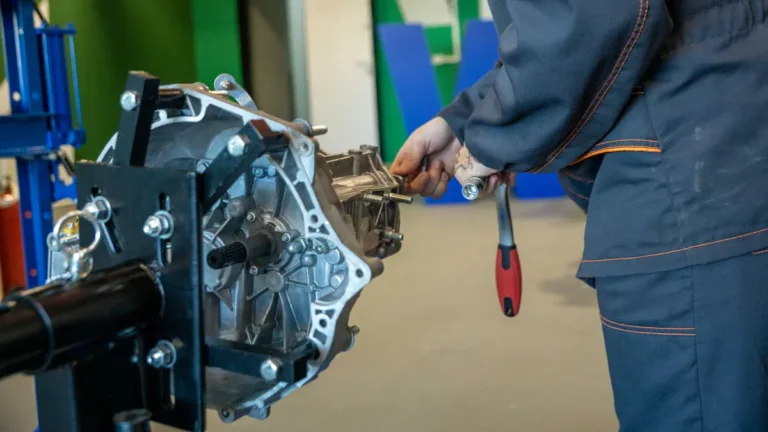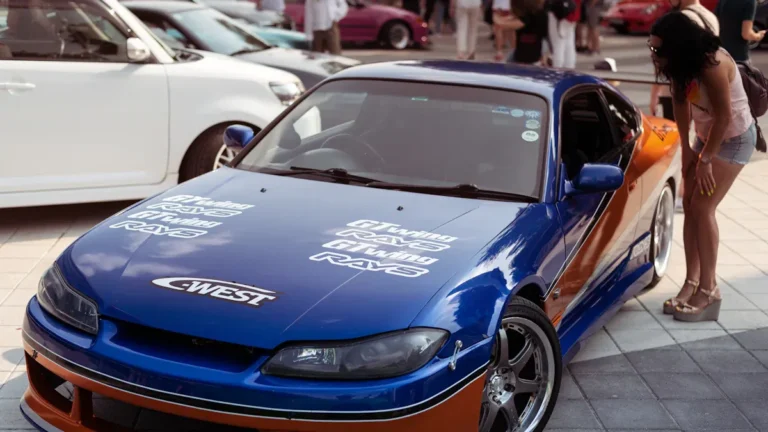
The Mexican automotive market is a significant economic force. It features many top selling models. Among the most popular cars, the Nissan Versa consistently leads sales. The Chevrolet Aveo also holds a strong second position. The Kia K3 secures its place as another top contender. These vehicles dominate the market, shaping consumer choices in Mexico. Understanding their popularity reveals key trends in the nation’s automotive landscape.
Key Takeaways
- The Nissan Versa is Mexico’s best-selling car. It is popular due to its low price and good value.
- Mexico’s car market is growing. More people are buying electric cars and cars from Chinese brands.
- Economic factors like lower interest rates help people buy new cars. This makes cars more affordable.
- Mexican car buyers want cars that save gas. They also want cars that are dependable and easy to fix.
Mexico’s Automotive Landscape

Market Performance Overview
The Mexican automotive market shows robust activity. From January to May 2025, new light vehicle sales reached 593,284 units. This marks an 8-year high. It represents a 0.9% increase compared to the same period in 2024. In May 2025, 119,961 new vehicles sold. This was a 0.4% year-over-year decline for that specific month. However, May 2025 sales showed a 10.8% increase over April 2025. The market demonstrates resilience and growth.
| Period | Total Sales (Units) | Year-over-Year Growth |
|---|---|---|
| January 2025 | 119,811 | 5.9% |
| February 2025 | 117,679 | 2.9% |
| January-February 2025 | 237,659 | 4.5% |
| September 2025 | 117,181 | 0.3% |
| January-September 2025 | 1,075,187 | -0.6% |
| Full-year 2025 (Projected) | 1,520,000 | N/A |

Leading Manufacturers in Mexico
Several manufacturers dominate the Mexican market. Nissan stands as the top manufacturer. It sold 255,116 light vehicles in 2024. Toyota also holds a strong position. Kia, Mazda, MG, Hyundai, Ford, and Suzuki complete the top brands. These companies offer a wide range of vehicles. They cater to diverse consumer needs. Brands like Chevrolet also maintain a significant presence.
| Brand | Sales (2024) |
|---|---|
| Nissan | 255,116 |
| Toyota | 121,968 |
| Kia | 104,384 |
| Mazda | 99,797 |
| MG | 60,168 |
| Hyundai | 53,303 |
| Ford | 52,359 |
| Suzuki | 43,661 |

Economic Factors Influencing Sales
Economic conditions significantly impact automotive sales. Inflation in Mexico has remained near the Central Bank’s target range. This is due to cost pressures in food and housing. Price increases for clothing and transport have been milder. Lower global energy prices contributed to this. Inflation is expected to stay near the target range. Lower interest rates, solid wage growth, and a weakening peso support this trend.
The Bank of Mexico reduced its policy rate to 8.5% in May. This reflects a shift towards supporting growth. Inflation pressures are easing. Further rate cuts are expected. This brings the year-end policy rate closer to 8%. Stable economic growth, rising disposable incomes, and low interest rates increase consumer purchasing power. This makes car ownership more affordable. Expanded financing options and credit availability also facilitate new vehicle purchases. GDP per capita and consumer spending per capita drive the passenger cars market forecast.
Top Selling Cars in Mexico: The Leaders

This section details the most popular cars in Mexico. It focuses on their sales performance and key attributes.
Nissan Versa
The Nissan Versa consistently ranks as the best selling car in Mexico. It held this position in both 2024 and 2025. The Versa dominated the market with a 6.2% share in 2025. This occurred despite a 20.2% year-over-year sales decline. In January 2025, the Nissan Versa achieved a 7% market share. This marked a 27.5% increase compared to the previous period. It was the highest share for the nameplate since March of the prior year.
Chevrolet Aveo
The Chevrolet Aveo is another top performer. It holds the title of the best-selling GM model in Mexico. In March 2025, the Chevrolet Aveo ranked second among all models. It captured 4.8% of the market share that month. The total market volume for new light vehicles in Mexico during March 2025 reached 127,360 units.
Nissan March
The Nissan March maintains a strong presence in the Mexican market. In August 2025, the Nissan March secured the fifth position among all models. It experienced a sales increase of 15.1% compared to the previous period. This compact car remains a popular choice for many buyers.
Mazda CX-30
The Mazda CX-30 is a significant player in the SUV segment. It shows strong performance in the market.
| Model | Sep-25 Sales | Ranking |
|---|---|---|
| Mazda CX-30 | 2,450 | 5th |
In September 2025, the Mazda CX-30 sold 2,450 units. This placed it as the fifth best-selling model for that month.
Nissan Kicks
The Nissan Kicks is a favorite among Mexican consumers. This model offers both traditional combustion engines and e-Power technology. Nissan sold 3,000 Kicks e-Power units by August 2023. By the end of July 2024, Nissan had sold 14,000 e-Power units in Mexico since October 2022. The Kicks e-Power significantly contributed to these sales. Manufacturers produced 72,447 combustion Kicks units in Mexico from January to June. The Nissan Kicks ranked seventh among best-selling cars in Mexico in 2025.
Other Popular Models
Several other models also rank among the most popular cars in Mexico. These vehicles cater to diverse consumer needs and preferences.
- KIA K3
- Volkswagen Virtus
- MG5
- Nissan Sentra
- Chevrolet Onix
The Nissan Magnite also stands out as a best-selling recent launch. It ranked 22nd overall. Other top-selling models in Mexico for 2024 include:
- Nissan Versa
- Nissan NP300
- Chevrolet Aveo
- Nissan March
- Mazda3
- Mazda CX-30
Here is a summary of top sales for some models in 2024:
| Model | Sales (2024) |
|---|---|
| Nissan Versa | 93,278 |
| Nissan NP300 | 59,031 |
| Chevrolet Aveo | 58,503 |
| Nissan March | 27,926 |
| Mazda3 | 24,632 |
| Mazda CX-30 | 24,542 |

Key Trends in Mexico’s Auto Market
This section explores the emerging and influential trends shaping the automotive sector in Mexico.
Electrified Vehicle Growth
Mexico is experiencing significant growth in electrified vehicles.
EV production in Mexico increased by 72.27% in the first months of 2025 compared to the same period last year. The country projects manufacturing over 250,000 electric units by the end of 2025. This represents a 21.17% increase over 2024 figures. Electric and plug-in hybrid vehicle sales in Mexico surged 83.8% in 2024 compared to the previous year. They reached a total of 69,713 units.
Rise of Chinese Brands
Chinese automotive brands are making their mark in Mexico. Their market share has seen some shifts.
- The market share of Chinese-made vehicles in Mexico decreased from 21.3% in 2024 to 19.9% so far in 2025.
- From January to April 2025, Chinese vehicles accounted for 19.1% of Mexican sales. In 2024, new car sales from China in Mexico represented 20.2% of the total light vehicles sold in the country. This figure remained consistent with 2023.
Luxury Segment Performance
The luxury car segment in Mexico shows a mixed performance.
| Attribute | Value |
|---|---|
| Market Size in 2024 | USD 7.0 Billion |
| Market Forecast in 2033 | USD 10.0 Billion |
| Market Growth Rate (2025-2033) | 4.0% |
| Sales Decline (Jan-Aug 2024) | 4.7% |
| Units Sold (Jan-Aug 2024) | 20,102 |
| SUV Sales Increase (Jan-Aug 2024) | 16.7% |
| Multiple-Use Vehicles Sold (Jan-Aug 2024) | 384,080 |
The luxury car segment in Mexico experienced a 4.7% decline in sales between January and August 2024. This totaled 20,102 units. It marked the most significant reduction since 2020. Despite the overall decline, the SUV segment showed strong performance.
It had a 16.7% increase in sales for multiple-use vehicles. This includes SUVs and crossovers. These vehicles reached 384,080 units from January to August 2024. Electrification and hybrid models are gaining traction. This is due to environmental awareness and government incentives. Chinese luxury auto brands are entering the Mexican market. They challenge traditional European manufacturers. Some European brands experienced sales declines in 2024.
Evolving Consumer Preferences
Consumer preferences in Mexico are changing.
| Preference Category | Millennials (%) | Gen Z (%) | Purchasing Importance (%) |
|---|---|---|---|
| Vehicle Buyers | 64 | 16 | N/A |
| Product Features | N/A | N/A | 45 |
| Sales Process | N/A | N/A | 35 |
| Dealership Staff Interaction | N/A | N/A | 15 |
| Aftersales Service | N/A | N/A | 5 |
| Service Visits | 62 | 20 | N/A |

Gerardo Gómez, Managing Director, J.D. Power Mexico, emphasizes the need for adaptation: “In sales and service, we are using the same processes we used with our grandparents. These new generations will not forgive us for that kind of follow-up.” He further stresses, “If brands don’t adapt, they risk losing the market. While 80% of processes can be standardized, the remaining 20% must be tailored to specific customer needs—whether male, female, young, or older,” highlighting the criticality of tailored aftersales services.
Customer satisfaction is primarily driven by the product (50%) and aftersales service (25%). The sales process plays a lesser role (5%). Mexican vehicle owners show stronger emotional attachment to their vehicles. This is compared to those in the U.S. and Canada. Their 2024 APEAL index reached 889 points. Satisfaction has declined year-over-year in comfort and fuel economy. This is partly due to complex technologies in modern vehicles. Electric vehicle (EV) owners report significantly higher satisfaction (918 points).
This is compared to gasoline/diesel vehicle owners. They are particularly satisfied with fuel economy, infotainment, engine/transmission, safety, and handling. Customer preferences in mexico are shifting towards smaller, more fuel-efficient vehicles.
This is due to increased environmental consciousness. There is also a growing demand for vehicles with advanced safety features and connectivity options. This reflects the increasing importance of technology. The market sees rising popularity of electric and hybrid vehicles. Environmental awareness and government incentives drive this trend. SUVs and crossovers are gaining traction. Their combination of space, comfort, versatility, and suitability for Mexico’s varied terrain makes them popular.
Why These Models Are Most Popular
Mexican consumers choose specific car models for several compelling reasons. These factors contribute to the consistent high demand for the most popular cars in the market.
Affordability and Value
Many buyers prioritize affordability. The top-selling models offer competitive pricing. They provide excellent value for money. These vehicles often come with essential features without a high cost. This makes them accessible to a broad segment of the population. They meet daily transportation needs efficiently.
Fuel Efficiency
Fuel efficiency remains a critical consideration for Mexican drivers. High fuel prices make economical cars very attractive. The leading models typically boast impressive fuel consumption figures. This helps owners save money on operational costs. Lower running costs contribute significantly to their appeal.
Reliability and Maintenance
Reliability is a crucial factor for Mexican car buyers. They seek vehicles that perform consistently and require minimal repairs. The J.D. Power 2023 Mexico Vehicle Dependability Study provides insights into vehicle reliability. This study measures problems experienced by original owners after 12-36 months. It covers 184 specific problem areas across nine categories. Overall dependability is determined by problems per 100 vehicles (PP100). A lower score indicates higher quality. The study shows the overall industry average is 213 PP100. Brands like Ford and Toyota show strong reliability.
| Category | Brand/Model | Reliability Rating (PP100) |
|---|---|---|
| Overall Industry Average | 213 | |
| Premium Brands | Mercedes-Benz | 136 |
| Audi | 147 | |
| Mass Market Brands | Ford | 137 |
| Suzuki | 175 | |
| Toyota | 175 |
These models also benefit from readily available spare parts. Their maintenance costs are generally low. This reduces the financial burden of car ownership.
Design and Features
Modern designs and practical features also attract buyers. These vehicles often offer comfortable interiors and user-friendly technology. Safety features are also a priority for many consumers. Manufacturers continually update these models. They ensure they meet evolving consumer expectations. Their strong sales figures reflect this successful combination of attributes.
The Mexican automotive market thrives, with models like the Nissan Versa and Chevrolet Aveo leading sales due to their affordability, fuel efficiency, and reliability. Looking forward, Mexico’s automotive landscape will transform significantly. The country is projected to become the 5th largest vehicle producer globally by 2025. This growth includes increased support for electric vehicle production and a rising demand for advanced materials. Solutions for software-driven vehicles and new training initiatives for manufacturing talent will also shape the future. Vehicle registration is projected to increase from approximately 24 million units in 2023 to 38.3 million by 2028, while vehicle production will grow from 4.29 million to 4.85 million units in the same period.

FAQ
What is the top-selling car in Mexico?
The Nissan Versa consistently ranks as Mexico’s best-selling car. It held this position in both 2024 and 2025. The Versa dominated the market with a 6.2% share in 2025. This model remains a popular choice for many Mexican drivers.
Which manufacturers lead the Mexican automotive market?
Nissan is the top manufacturer in Mexico. It sold 255,116 light vehicles in 2024. Other leading brands include Toyota, Kia, Mazda, MG, Hyundai, Ford, and Suzuki. These companies offer a wide range of vehicles to consumers.
What economic factors influence car sales in Mexico?
Economic conditions significantly impact automotive sales. Lower interest rates, solid wage growth, and a weakening peso support consumer purchasing power. Stable economic growth and rising disposable incomes make car ownership more affordable. Expanded financing options also help facilitate new vehicle purchases.
What trends are shaping Mexico’s auto market?
Mexico’s auto market shows several key trends. Electrified vehicle growth is significant, with production increasing by 72.27% in early 2025. Chinese brands are also gaining market share. Consumer preferences are evolving towards fuel-efficient vehicles and advanced safety features.
Why are certain car models popular in Mexico?
Popular models succeed due to several reasons. They offer affordability and good value. Fuel efficiency is a critical consideration for drivers. Reliability and low maintenance costs also attract buyers. Modern designs and practical features, including safety technology, contribute to their appeal.



